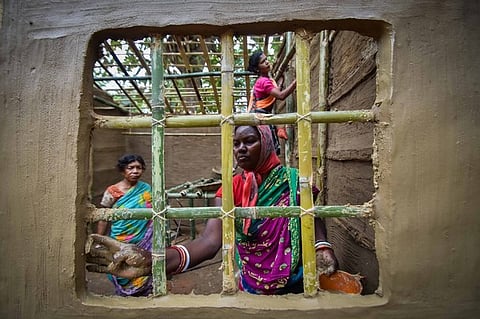

Every year, the World Indigenous Peoples Day is celebrated on August 9 to raise awareness about the indigenous people, their culture and importance to the world.
Celebrated by the United Nations since 1994, it commemorates the first meeting of the UN Working Group on Indigenous Populations in 1982 on this day. It is observed every year to ensure that these versatile pillars of the earth (indigenous communities) are paid due heed for their unmitigated contribution in ensuring safety, conservation, sustainability and perseverance of the world and combating the adverse impacts of climate change.
The UN’s declaration of this day is a significant milestone in recognising and promoting the rights of these communities, reflecting a growing global acknowledgment of their unique contributions and struggles. The theme of the Indigenous Day in 2024 focuses on ‘Protecting the Rights of Indigenous Peoples in Voluntary Isolation and Initial Contact’. The objective of holding this day is to highlight the rich traditions passed on by word of mouth from generations and imprinting the exclusive, institutionalised wisdom and knowledge systems of these communities across time. It is also an opportunity for the scholars and the administrators to advocate for their rights and recognition.
Indigenous Population
There are an estimated 476 million indigenous people in the world living across 90 countries. They make up less than six per cent of the world’s population, but account for at least 15 per cent of the poorest. They speak an overwhelming majority of the world’s estimated 7,000 languages and represent 5,000 different cultures. They are inheritors and practitioners of unique cultures and ways of relating to people and the environment. Despite their cultural differences, indigenous people share common problems related to the protection of their rights as distinct people.
India is home to a vast and diverse range of indigenous communities. They have been addressed as ‘Adivasis’ or ‘Janjatis’. They possess valuable traditional knowledge on sustainable practices. Climate change is a growing threat to the global ecosystem but it is the practices of the indigenous people that promote preservation and protection of earth.
Significant Challenges
There are more than 700 ethnic groups officially recognised as Scheduled Tribe that form the indigenous people in India comprising an estimated population of 104 million or 8.6 percent of the national population. However, there are some significant challenges faced by this population. Some of them are crimes, intimidation from armed opposition groups, land and forest rights. The tribes living in the forests constantly live under the threat of eviction under the garb of forest and animal conservation. Besides, their rights are often violated in the process of eviction for acquiring land for business and infrastructural development.
Of over 700 tribal communities, 75 groups have been identified as Particularly Vulnerable Tribal Groups who are unique and culturally rich. But, they are at various stages of development, experiencing a number of vulnerabilities. There are a number of laws and Constitutional provisions to safeguard their interests but the provisions need to be translated into action. All that the indigenous people seek is due recognition and acceptance of their identities and their inherent rights to their traditional lands and natural resources. It is essential that special measures be put in place to protect them and their distinctive cultures.
Ota is an anthropologist of repute, former director of SCSTRTI and Odisha State Tribal Museum. Currently, he is senior advisor, UNICEF. Views expressed are personal